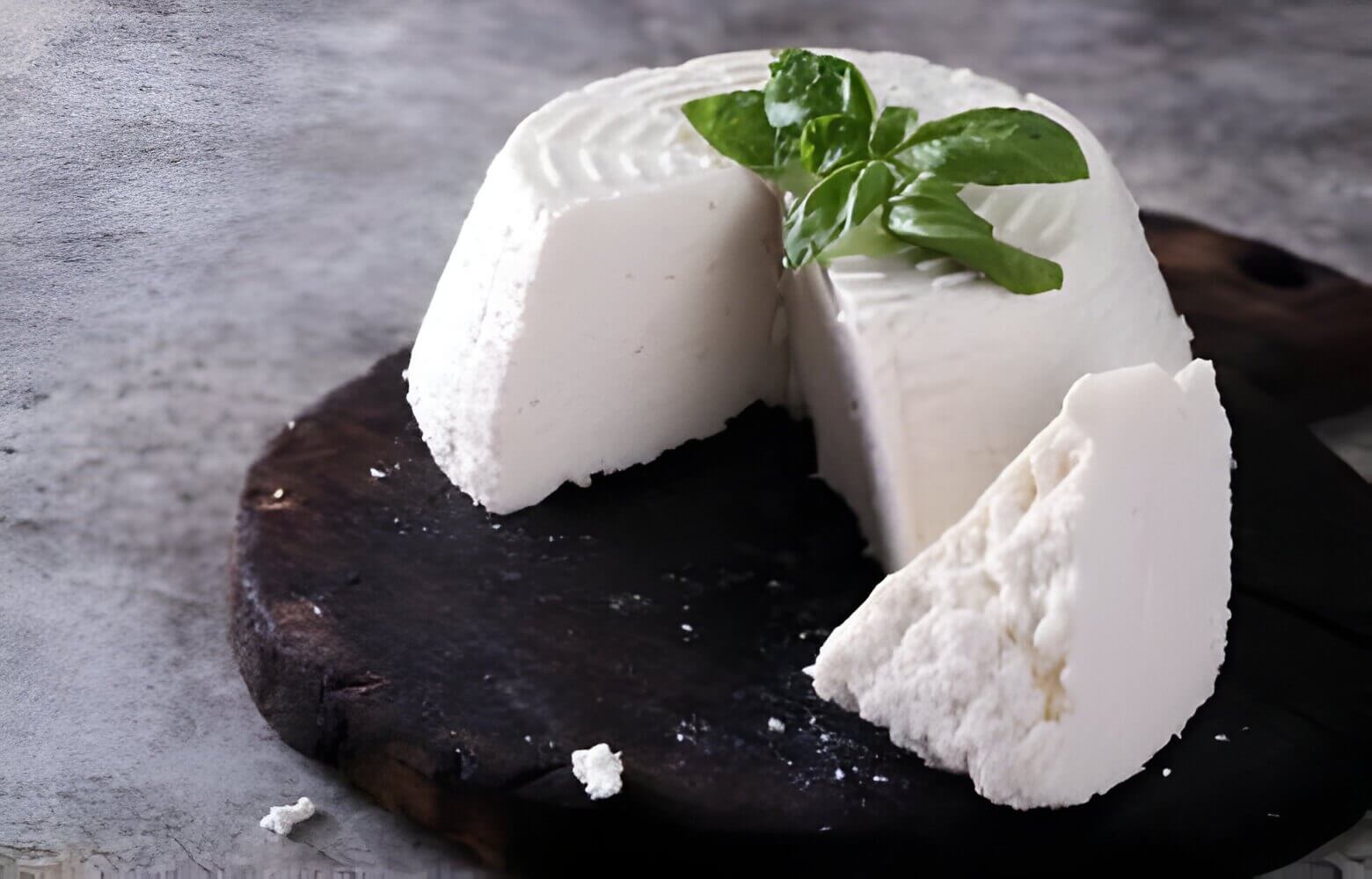Yes, dogs can eat ricotta cheese, but it should only be given in moderation as a treat and not as a regular part of their diet. Ricotta cheese contains proteins and calcium that can benefit your dog, but it also has fats and lactose, which can pose health challenges for some canines.
Dogs differ in their ability to digest lactose, the sugar found in dairy products. While some canines may handle small amounts of ricotta cheese without any issues, others might experience digestive upset, such as gas, diarrhea, or vomiting.
When feeding your dog ricotta cheese, always opt for plain, low-fat varieties without any added sugars or artificial sweeteners, especially xylitol, which is toxic to dogs. This will help to minimize calorie intake and avoid any potential health hazards. The benefits of feeding Ricotta cheese are listed below.
- Protein: Ricotta is a good source of protein, which is crucial for muscle development and repair in dogs. Protein supports various bodily functions, including the maintenance of a healthy coat and skin.
- Calcium: This mineral is abundant in ricotta cheese, contributing to strong bones and teeth. Calcium also plays a role in nerve function and muscle contraction.
- Vitamins: Ricotta provides various vitamins such as Vitamin A, which is beneficial for vision, skin, and coat health, and B vitamins, important for energy metabolism and maintaining a healthy nervous system.
- Fats: Although fats should be limited, the fats in ricotta can supply dogs with energy and help in the absorption of fat-soluble vitamins.
What is Ricotta Cheese?
Ricotta cheese is a light, creamy dairy product with a delicate texture and subtle sweetness. It originates from Italy and is made from the whey that is left over from the production of other cheeses. Traditionally, ricotta (meaning ‘recooked’ in Italian) is crafted by heating this whey, adding an acid like lemon juice or vinegar, and allowing the protein to form soft curds which are then strained. Unlike harder, aged cheeses, ricotta is a fresh cheese that is enjoyed for its simplicity and versatility in both savory and sweet dishes.
Ricotta can come from the whey of cow, sheep, goat, or buffalo milk, leading to subtle differences in flavor and texture. Cow’s milk ricotta is the most common variety and is widely available in most supermarkets. It’s often used in Italian dishes like lasagna, stuffed pasta fillings, and cheesecakes, as well as a spread on toast or blended into sauces.
Is Ricotta Cheese Safe for Dogs to Consume?
Ricotta cheese is generally safe for dogs to consume in small quantities. This cheese, known for its creamy texture and mild flavor, can indeed be a delightful treat for your pet. However, because ricotta is a dairy product, it contains lactose, which can be difficult for some dogs to digest, particularly those with lactose intolerance or sensitive stomachs.
Can Puppies Consume Ricotta Cheese Safely?
Puppies can consume ricotta cheese safely in even smaller quantities than adult dogs, primarily due to their developing digestive systems and smaller size. The same guidelines about lactose tolerance and portion control apply, but with more stringent considerations:
- Extra Gentle Introduction: If you decide to introduce ricotta cheese to a puppy, start with a very small amount to ensure they handle it well.
- Watch for Digestive Issues: Puppies’ digestive systems are more sensitive. Even a minor intolerance or allergy could cause significant discomfort.
- Nutritional Balance: Puppies need a balanced diet to support their rapid growth. Treats like ricotta cheese should only make up a tiny portion of their diet to not displace more nutritionally complete foods.
How Much Ricotta Cheese Can I Feed My Dog?
The amount of ricotta cheese a dog can safely consume largely depends on the dog’s size, overall health, and daily calorie intake. As a general guideline, ricotta cheese should make up only a small portion of your dog’s diet—treats, including cheese, should not constitute more than 10% of a dog’s daily calorie intake.
For small dogs, a teaspoon of ricotta cheese can be a suitable portion size to start with. Large dogs might be able to handle up to a tablespoon.
Always consider the individual characteristics of your pet, such as any lactose intolerance, obesity, or pancreatitis, where dairy products should be avoided. When in doubt, or if you plan to regularly include ricotta cheese in your dog’s diet, consulting with a veterinarian is advisable. They can provide guidance based on your dog’s health status and dietary needs, ensuring that the addition of ricotta cheese is both safe and beneficial.
What are the Risks of Feeding Ricotta Cheese to Dogs?
While ricotta cheese can be a nutritious treat in moderation, there are potential risks associated with feeding it to dogs, much like any human food introduced into their diet. Being aware of these risks can help pet owners make informed decisions about their dog’s diet.
- Lactose Intolerance: Dogs vary in their ability to digest lactose. Some may experience lactose intolerance, which can lead to digestive discomfort, diarrhea, or vomiting after consuming dairy products like ricotta cheese.
- Obesity: Ricotta cheese, especially if not the low-fat variety, is rich in fats, which can contribute to weight gain. Obesity in dogs increases the risk of several health issues, including diabetes, heart disease, and joint problems.
- Pancreatitis: High-fat foods can trigger pancreatitis in dogs, a serious and painful condition that inflames the pancreas. Symptoms include vomiting, diarrhea, abdominal pain, and lethargy.
- Allergic Reactions: Although rare, some dogs might be allergic to dairy products. Signs of an allergic reaction can include itching, hives, swelling, and difficulties breathing.
- Artificial Additives: Some ricotta cheese variants may contain artificial flavors, sweeteners, or other additives that could be harmful to dogs. Xylitol, an artificial sweetener found in some foods, is particularly toxic.
